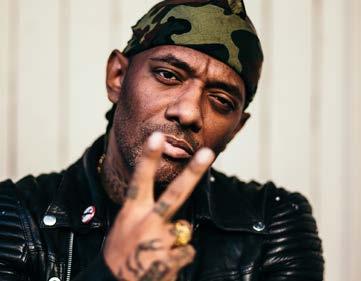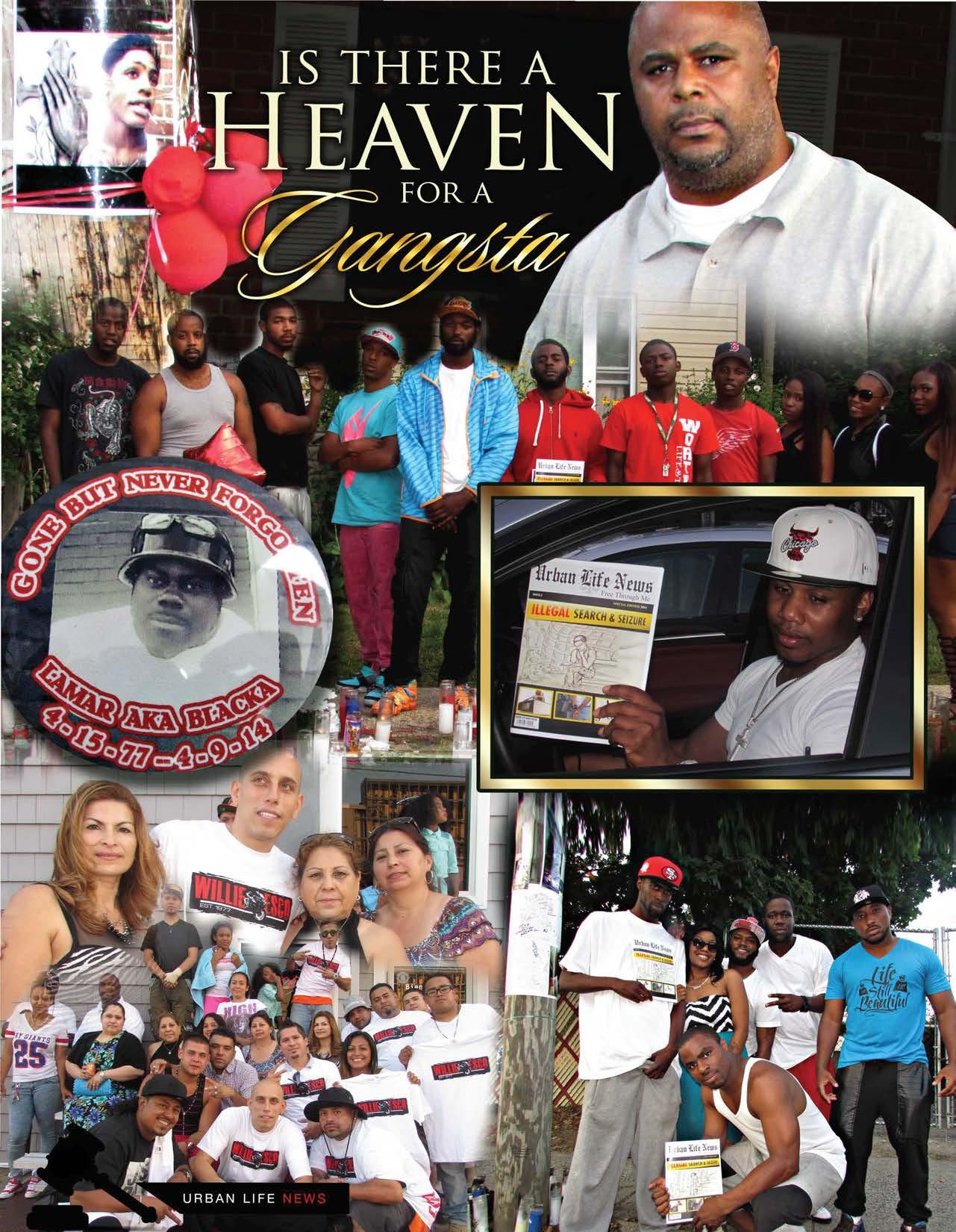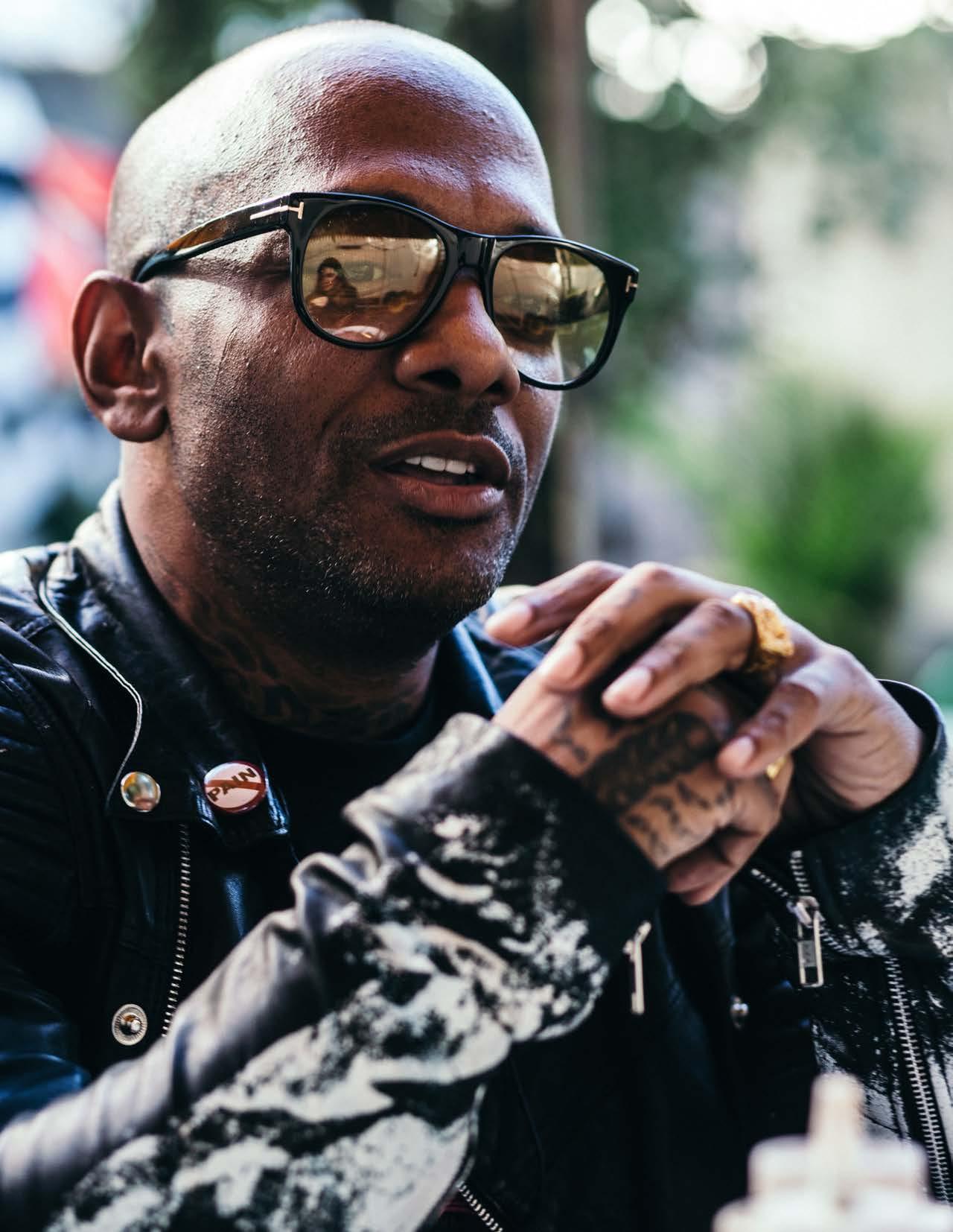
10 minute read
Remembering Prodigy
1974-2017
Interview and Commentary by Vikki Tobak
Photos by Anthony Geathers
Last October, Prodigy, one half of the groundbreaking hip-hop duo Mobb Deep, sat at a table at Pearl’s Caribbean in Williamsburg New York, not far from where he lived. In one of his last interviews, he spoke about his history with food and how hip-hop, and most acutely, his need to control his sickle cell anemia, informed his choices around food and health. He had just published “Commissary Kitchen: My Infamous Prison Cookbook,” following a three year stint in a New Jersey correctional facility on weapons charges and as he spoke, you got the sense this was just the beginning of his growing interest in food justice. “I’m starting to connect the dots,” he said. This would one of his last interviews and was also his last professional photo session.
On Tuesday, after being hospitalized in Las Vegas for complications from sickle cell, Prodigy died at the age of 42.
Throughout his life Prodigy, born Albert Johnson, spoke at length about how his lifelong battle with sickle cell anemia made him conscious about what he put in his body. Growing up in Hempstead, Long Island, he was diagnosed with sickle cell before he was a year old. The disease, which disproportionately affects blacks and Latinos, causes the body to produce abnormal blood cells shaped like crescents or sickles rather than discs. a blood disease marked by debilitating bouts of bodily pain.
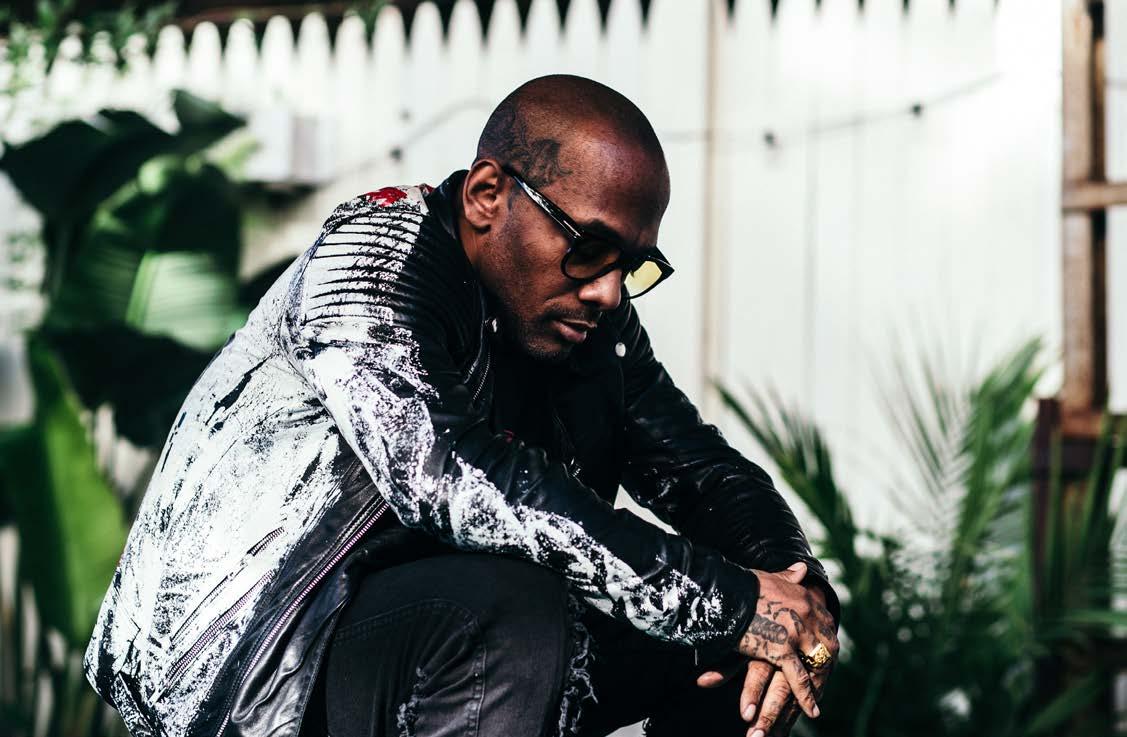
By the time he made his home in Queensbridge Houses, P was well versed in the pain caused by sickle cell and grew frustrated as the disease disrupted his budding career and tour life with chronic pain and frequent hospital visits. By his own admission, P turned toward drugs and drinking despite understanding that a hardrock life could potentially make sickle cell all the more deadly.
And as he grew older, living with the disease made him increasingly focus food and wellness. Although he would never reach his full potential as a health advocate, P saw himself as part of a larger movement in hip-hop towards health consciousness. Speaking on the long history of hip hop artists who are either vegan or vegetarians, he pointed to fellow artists including Styles P and Stic from Dead Prez who have been actively building on the connection of hip-hop and food justice. A conversation with Prodigy from October 2016:
- - -
Growing up in Hempstead, Long Island and being diagnosed with sickle cell at a very early age, were you thinking about food and nutrition as part of your everyday early on?
I was born with sickle cell and I remember being in the hospital as a little baby and I just remember the pain, bright lights shining in my face. I knew from the very beginning that something was wrong because I was always in pain. I knew some guys in Long Island who were part of the Five Percent Nation. That’s where it all started. That’s when I started changing my diet when I learned the 120 lessons and I read ‘How To Eat To Live” ( a series of two books published by Nation of Islam leader Elijah Muhammad in the 1960s). I was around 15 years old. After reading it took another three years for me to understand and apply what I was reading to my everyday life. I had to get used to drinking water, stop eating candy and drinking soda, stop with the fried foods. I started feeling better.
Yeah, when I was like 11 or 12, I started smoking weed and drinking 40 oz.’s , just wild living and wild life and I didn’t think much about how that was affecting my health.
We started Mobb Deep in like 1991 and going on the road alot. For my health, things just got worse. I’m talkin’ Hennessy for breakfast, St. Ives for breakfast …shit like that. I would get sick alot. Like 5 or 6 times a year and it would stop me from doing shows. Sometimes I would get sick in the middle of a flight. Then at 21, I started to figure out that I could control sickle cell through diet.
Did anyone in the hip-hop community attempt to help you when they saw you were struggling with your health issues?
Not really but they would put it into their music. Like I would listen to Rakim’s songs and I would learn to eat fish, which is his favorite dish (laughs, quoting a well known Rakim lyric “Fish which is my favorite dish…”). And then Wu-Tang, they were talking about similar things. They would talk about eating salad in their lyrics and that made it cool. That made it, like, not corny.
Did you ever become fully vegan?
I’ve tried it but I couldn’t go all the way. I eliminated what I could. I like to eat fish. Some people say ‘oh you gotta die from something’ and my answer to that is that you do your best. You do better than you were doing before.
My grandparents were from the south, Virginia and Texas, so they were big on chitlins and pig feet and all that stuff and they weren’t too health conscious. The only things I knew (about nutrition) was don’t eat pork. That was something my grandfather told me. The doctors used to tell my family that I should drink alot of fluids for my sickle cell.
I was never officially part of the 5% nation but I had a lot of friends who were. Still, I studied all the writing and teachings. I studied a lot of Nation of Islam teachings on food. And also Dr. York’s books re
Do you believe food is part of this bigger movement of social justice, politics etc..
Everything is one. The flower of life. Everybody’s energy affects everyone else. It all works together. Religion, politics, food — when you connect the dots you see the big picture. Food has been in my lyrics for a while. I’ve been planting seeds on purpose. When we came out with The Infamous, Shook Ones, all those songs and albums, I understood who our audience was and what they wanted to hear from us. And at the same time, I was learning alot and it’s impossible not to put what you’re learning into your lyrics. But I also didn’t want to lose our fans by becoming preachy and turning the fans off.
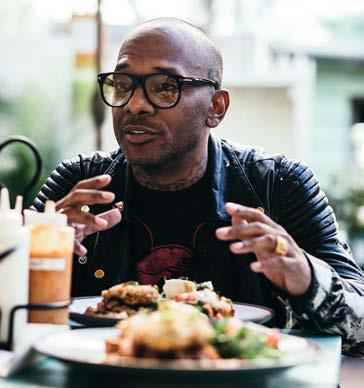
Our fan base is like criminals (laughs). Out there on the block, shooting people, robbing people, this is where we come from. This is the audience that made us popular to the world. I wanted to put information into the songs but not come off as preaching. By the time we got to the Hell On Earth album, I said the word ‘Illuminati’ in a song but I didn’t want to explain. I was planting seeds. Now I’m at the point where I’m getting ready to put out a new album and I’m talking about all kinds of stuff — conspiracy theories, health, spirituality — all that.

Do you feel like your cookbook is part of this larger movement in hiphop towards health consciousness?
I definitely consider myself part of that. I try to put it out there for people to learn and how to eat. The book was just the start of that.

What was it like when you were in prison talking to fellow inmates about food and health?
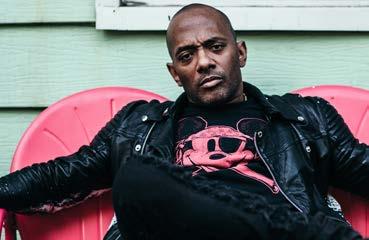
A very small percentage was into it- like 2 or 3 out of 40 inmates. But several dudes came over to me and said that I helped them to eat better. And more importantly, live better. They told me that right before I left prison. There’s always a better alternative. There are different ways to fit it to your budget and and even if you just do better, that counts. You don’t have to be perfect but just take steps to improve.
Prodigy was a natural and prolific storyteller. That was evident from the minute anyone heard Mobb Deep’s Shook Ones (“for every rhyme I write, it’s 25 to life…”) or really any of Mobb Deep’s music over the years. But by the time, I sat down with P, it had been years since he was the young hard rock making new music out of Queensbridge. By now, he was a man in his early 40’s grappling with a career and family, he had done time, written a book and was trying to do right by his health. He had evolved and I wanted to know more about what inspired his evolution. A few months before he passed away, we met at one of his favorite restaurants, Pearl’s Caribbean in Williamsburg Brooklyn, around the corner from where he lived. Before we left, he ordered a plate of food to-go to take to his daughter. I remember thinking how thoughtful that was. Later that night, I saw Prodigy at his book release party at Sonos in Soho, his daughter by his side. I asked her how the carry-out was. She just looked at her dad and smiled like “how does she know about my lunch?” We all laughed and that was the last time I saw Prodigy.

Obviously, I didn’t realize that day would be one of his last interviews and the photographer who accompanied me, Anthony Geathers, had no idea that he would end up with the last portrait of P. Anthony grew up on hip-hip and, to him, P was somewhat of an elder statesman, an icon of golden era
hip-hop that maybe Anthony was too young to actually experience in the clubs but certainly recognized in the lyrics as a young man growing up in New York.
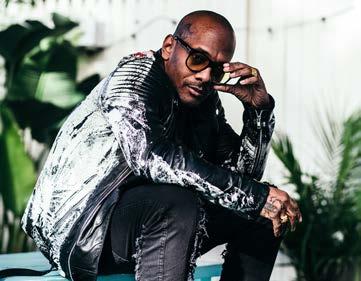
Prodigy and I spoke about healthy living and much more, including the dietary measures he took throughout his career to stay healthy on the road, in the studio, and in prison. He told me he was “just starting to connect the dots” of the food injustices that face so many of the world’s citizens. It’s hard not to think about the impact P could have had if he were still around and it's an honor to share these words with the readers of Urban Life News...
Vikki Tobak
Journalist
Reflections on Photographing Prodigy:
A Message from Photographer Anthony Geathers
Good morning ya’ll. Finally at the batcave still taking in the fact that sadly, Prodigy passed away....he’s the first MC that I got to shoot portraits of. I remember that same exact day like it was yesterday. Getting to actually hear about how he met Havoc, his days of growing up in Queens, living his life as an MC, giving NYC timeless music alongside his mans Havoc and sharing his life through his lyrics. P is New York 1000% and it is super dope to see
other MC’s, people who had Prodigy in their life soundtracks just celebrate his life and music. To be one of the last people to make portraits of Prodigy is bitter sweet. Sweet because he was on my bucket list of people to photograph for a while and I got the chance to share that moment with him . It is also bitter because one, he died so damn young, two he was the first person I photographed that passed away. I kid you not. So these portraits, I’m sharing with ya’ll today is not mourning his death. It’s celebrating an artist I grew up listening to, especially during dark times as well as the good, and I got to meet of NYC’s legends and make art with; that I can tell my future kids about. So please, share his life’s work, let’s celebrate Prodigy while I share my art with the culture and the city of NY. RIP Prodigy. NYC loves you and will miss you. Hold it down upstairs with Sean Price. And thank you for allowing this kid to make a set of pictures with love, respect and admiration that celebrates you as a respected MC, father, and son.
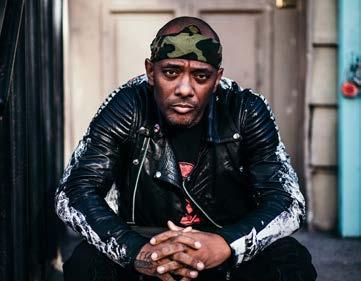
Anthony Geathers
Photographer


